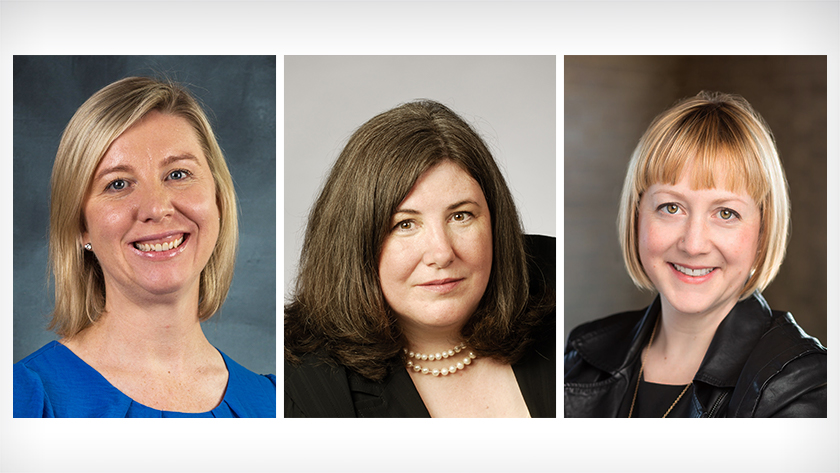
During the COVID-19 pandemic, health care workers have had to face exceptionally stressful, uncertain and demanding work conditions. These burdens have elevated the risk for anxiety, depression, insomnia, post-traumatic stress and burnout.
Early during the pandemic UHN’s Centre for Mental Health designed and implemented a program called UHN CARES (Coping and Resilience for Employees and Staff) to provide mental health support to everyone working at UHN. Drs. Kathleen Sheehan, Susan Abbey and Suze Berkhout, investigators at TIER and the Toronto General Hospital Research Institute, were behind the creation of this program and have recently reported on its development and success.
“Throughout the pandemic numerous studies have investigated the burdens on health care workers, yet few have explored how to best provide support,” says Dr. Abbey.
“We aimed to not only support UHN staff, but also establish evidence and guidelines that could be used elsewhere,” adds Dr. Berkhout.
The team of psychiatrists and psychologists at the Centre for Mental Health decided to implement a stepped-care approach through UHN CARES, in which users would be able to access and request the help they felt best met their needs. Three main ‘steps’ of care were made available:
- Self-directed mental health resources, such as videos and infographics;
- Virtual group-based care, such as group therapy sessions and mindfulness meditation; and
- Individual appointments with a psychiatrist or psychologist.
Upon launching UHN CARES in April 2020, the team began collecting data on the program. Through interviews, surveys, forums and feedback reports, they were able to track the evolving needs of UHN health care workers in real time and adjust the delivery of care accordingly.
At the beginning of the pandemic, staff highlighted stresses from the home and workplace intersecting, challenges due to anxiety and depression, and fears of inadequate support. As the pandemic continued, responses shifted towards themes of fatigue, demoralization and burnout, as well as a need for support to be flexible and diverse.
The program’s dynamic structure enabled this feedback to be incorporated, making it more relevant and effective.
By November 30, 2021, UHN CARES program information had been downloaded nearly 1,000 times from UHN’s internal website, and the self-referral form for accessing the program’s resources had been downloaded more than 500 times. Many of the self-directed resources were subsequently accessed hundreds of times—more than 2,600 altogether—and around 1,100 psychological or psychiatric appointments were provided.
The services were also positively received: 93% of users said they benefited from the program and 95% said they would recommend it to a colleague.
“With UHN CARES, we have demonstrated that mental health support programs for health care workers can be highly valued and feasible,” says Dr. Sheehan. “The success of such programs depends on actively engaging health care workers throughout design and implementation, ensuring that resources are high-quality, and having program providers who understood the context of care.”
UHN CARES resources are currently available to Team UHN through the corporate intranet.
This work was supported by the Mount Sinai Hospital – University Health Network Academic Medical Organization Innovation Fund, The Princess Margaret Cancer Foundation and the UHN Foundation. Drs. Kathleen Sheehan, Susan Abbey and Suze Berkhout hold faculty appointments in the Department of Psychiatry at the University of Toronto.
Sheehan KA, Schulz-Quach C, Ruttan LA, MacGillivray L, McKay MS, Seto A, Li A, Stewart DE, Abbey SE, Berkhout SG. "Don't Just Study our Distress, Do Something": Implementing and Evaluating a Modified Stepped-Care Model for Health Care Worker Mental Health During the COVID-19 Pandemic. Can J Psychiatry. 2022 Jul 19. DOI: 10.1177/07067437221111372.

The COVID-19 Mental Health Supports Webpage, which hosts the UHN CARES program materials, was accessed more than 12,000 times between the start of the pandemic and November 30, 2021.

